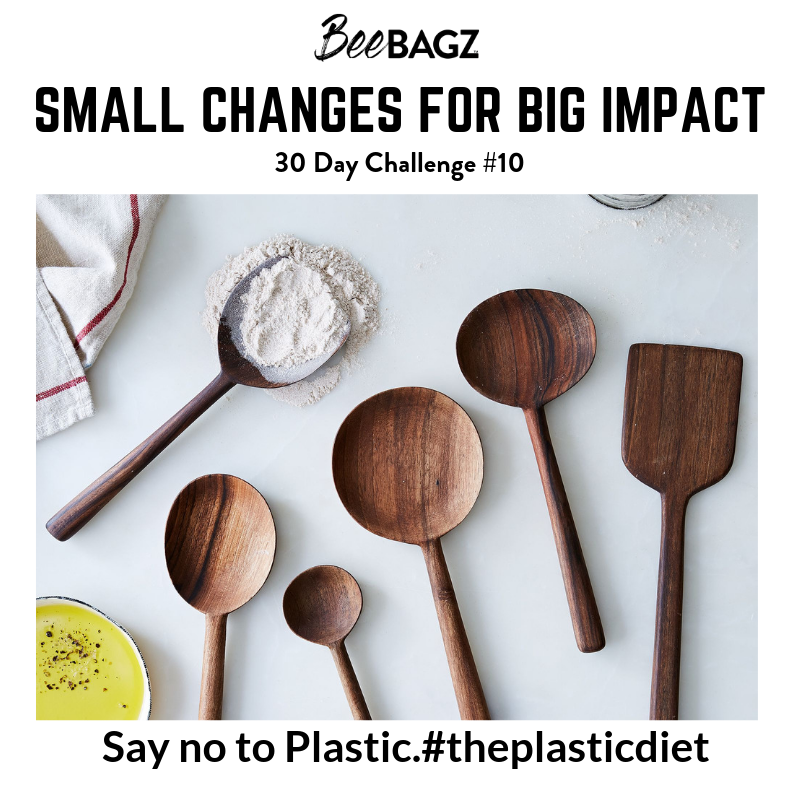
The Importance of Staying Committed to #theplasticdiet
Simple ways to give up plastic that are easy to stick with
At this point in the year, a lot of us are less committed to our resolutions. 80% of us will give up on them completely by February. Though this sounds unmotivating, there’s hope. Most people fail with their resolutions because they make unrealistic commitments that require unsustainable change. #theplasticdiet is the opposite – it’s as realistic, and easy to stick to, as it gets.
#theplasticdiet is a 30-day commitment to plastic-free living. It involves swapping out everyday items for their plastic-free alternatives. So far this month, we’ve traded plastic toothbrushes for ones made of bamboo, over-the-counter shampoo for natural conditioning shampoo bars, and disposable sandwich baggies for beeswax wrap baggies.
These changes may seem small, but they make a huge difference for the environment. With nearly 8 million tons of plastic garbage polluting our oceans each year, any change we make, no matter how miniscule, helps reduce this waste.
2 more weeks of swap outs
Lets review the last two weeks of #theplasticdiet 30 Day Challenge, making it our third week or 21 simple everyday household items you can swap out:
- Toilet scrub; skip the plastic scrub brush, there are wooden alternatives that will do the job just as well.
- Wooden toys: they’re more durable and last longer than plastic toys.
- Wooden spoons and kitchen utensils: these cooking tools can withstand the heat of the kitchen, unlike plastic utensils that break down quickly or melt when exposed to extreme temperatures.
- Mason jar soap dispenser: with a reusable soap dispenser, you can simply buy liquid soap and refill it, instead of buying and tossing plastic bottles repeatedly. Plus, the mason jar design adds a nice touch to an item that’s usually boring.
- Wooden cutting board – in addition to reducing plastic waste, wooden cutting boards provide better grip on your countertops and knives don’t create as many grooves, which lessens the spread of bacteria.

And once you’ve made your home plastic-free, rethink the way you shop:
- Reusable shopping bags – these shopping bags have become a way of life for those living in cities where plastic bags have been banned or taxed (i.e. Seattle and San Francisco). You can use them for months, or even years, and significantly cut back on the plastic that you bring home.
- Mesh produce bags – these are reusable and keep your fruit and veggies fresher for longer periods of time.
- Buy loose veggies and fruit – these won’t have plastic wrapping; you can easily toss them into your mesh bags, and they’re fresher.
- Milk in glass containers – these containers can be reused or recycled.
- Fresh bread – you can avoid the plastic wrapping and it tastes best this way.

Easy swaps can make a big impact. Stick with #theplasticdiet and make a difference.